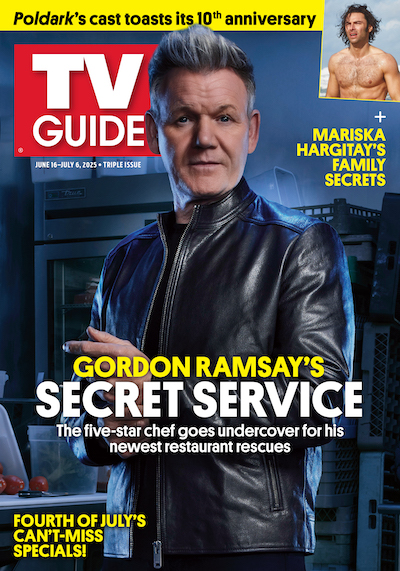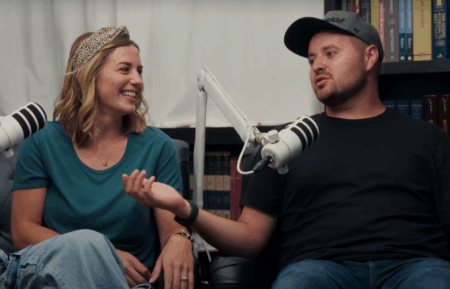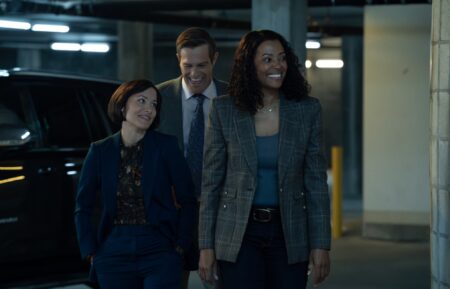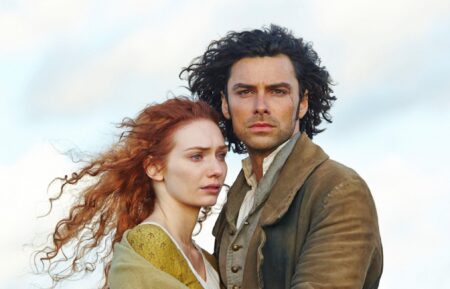An Ode to Caleb Nichols, ‘Westworld’s Eternally Underrated Hero
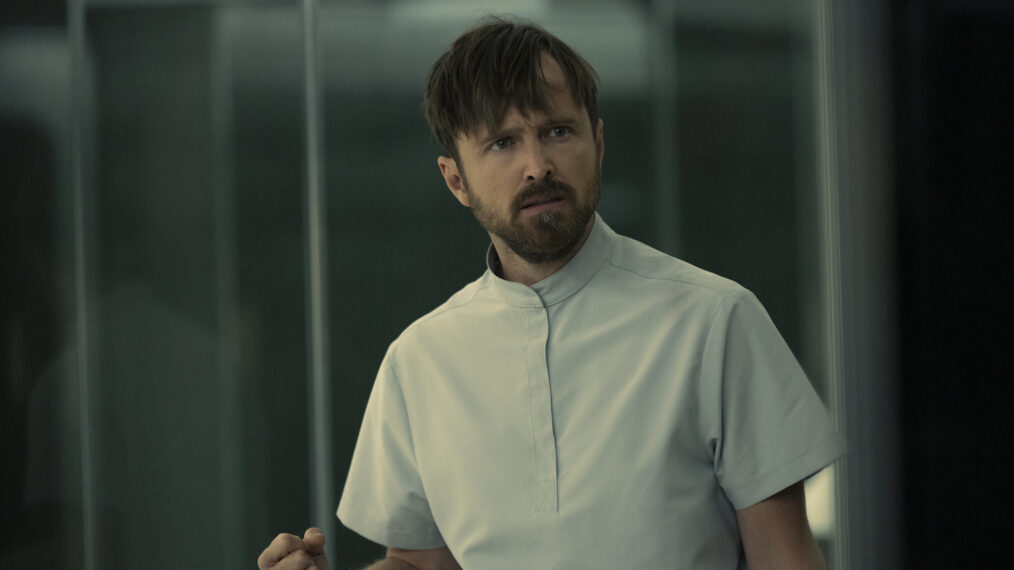
Opinion
[WARNING: The following contains MAJOR spoilers for Westworld Season 4.]
To call Caleb Nichols (Aaron Paul) “controversial” among Westworld fans would be like calling the show itself “a little brain-teaser.” Some like Caleb. Some seem to spend the duration of his screentime fervently wishing Season 3 had never happened. As with many not-quite-fan-favorite characters, there are glimmers of truth in the criticism—and there are plenty of counter-arguments, too.
As Dolores might say: some choose to see the “boring” in Caleb. Why not choose to see the beauty? Here’s why we think he’s better than many fans give him credit for.
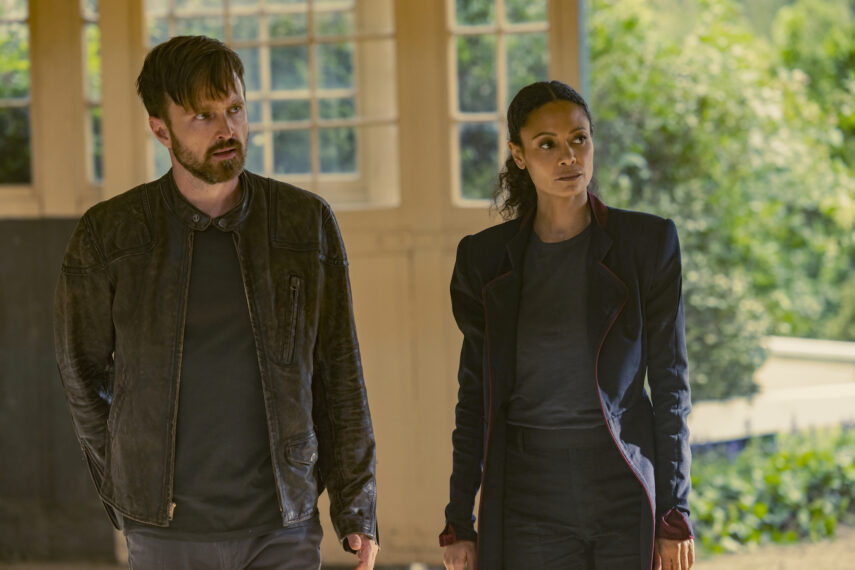
One concession to make from the start: no, Caleb isn’t as quite as interesting as the Season 1 characters, but therein lies an essential point. Caleb hasn’t been around all that long, and as such, there’s not much benefit in comparing stories. We’ve followed Dolores (Evan Rachel Wood), Maeve (Thandiwe Newton), The Man in Black (Ed Harris) and Bernard (Jeffrey Wright) since “The Original.” As a Season 3 addition saddled with the narrative constraints of not being a host, Caleb arrived too late to have the dramatic highs and lows of reaching the center of the maze, or breaking out of Westworld. But what he does have is a real, relatable, human angle. Fitting, since Caleb was once one of the only true flesh-and-blood characters left on the show.
Caleb’s story is nothing if not heartbreakingly human. There’s a rawness to his traumatic past that speaks to humanity’s darkest traits and deepest tragedies; his mother’s abandonment of him and her subsequent health troubles, his turn to crime to support her treatments, his continued desperation for a better life and frustration with a system that always held it beyond his reach. Isn’t there something relatable in that?
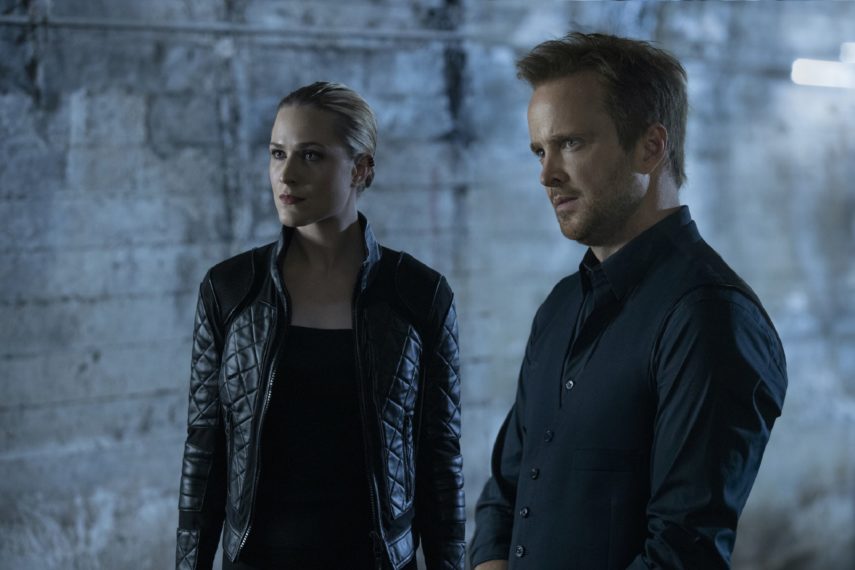
Caring for sick family members and barely scraping by with expensive hospital bills, feeling inadequate while yearning for more… those are experiences that hit close to home for many, if not always on Westworld’s scale. And that’s to say nothing of Caleb’s mental health, which adds another relatable element to his character in the context of today’s mental health crisis. On that note, it was good of Westworld to not handwave away Caleb’s PTSD between seasons. Too many shows sweep a character’s mental illness under the rug when it’s no longer strictly necessary for plot reasons, and it’s good of Westworld to show that recovery is typically an ongoing process.
Giving Caleb a family in Season 4 further highlights his humanity. It’s almost ironic that the season that (MAJOR SPOILER!) turns him into a host also emphasizes his true nature in perhaps the most genuine way yet: love. Caleb loves his daughter, he loves his wife, and there’s an argument to be made that he loves Maeve, platonically. Granted, we know hosts love, too. Love is not a Caleb-exclusive emotion, but there’s something recognizable in his do-it-or-die-trying (or more accurately for 277 host-Calebs, do-it-and-die-trying) mission to reach out to Frankie. Even as a host, Caleb is deeply human.
Perhaps his greatest sin is that he was introduced during a season that left many fans lukewarm, and parts of his story felt rushed or unexplained. But in hindsight, even with the storytelling hiccups, he adds something to those eight episodes that would be sorely missed if he never existed. After all, how many of us can survive a smattering of bullets to the gut, wield a katana like an additional appendage or turn into the Terminator at will? Very few, I’d reckon.
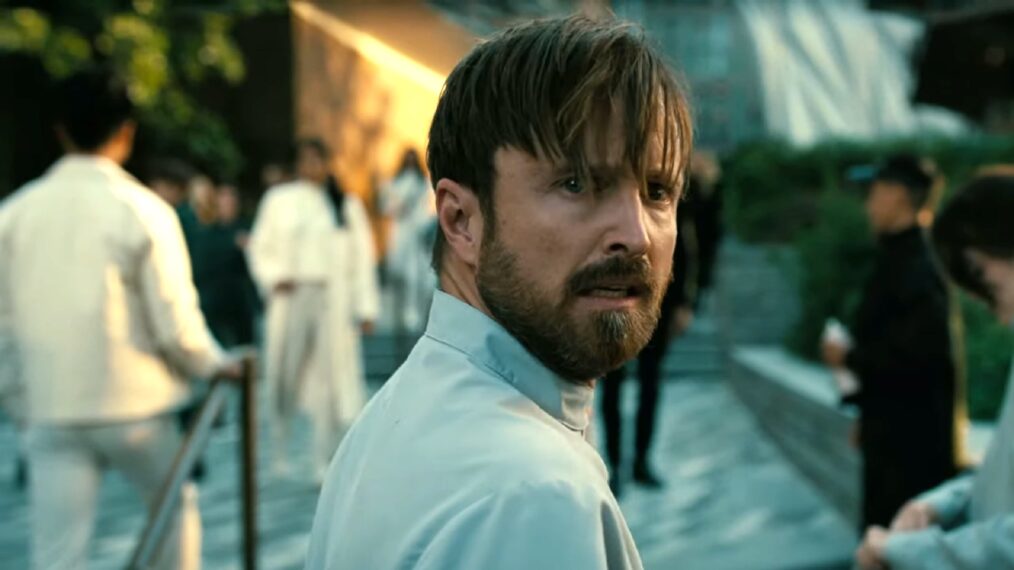
Sure, Caleb’s status as a Divergent Outlier makes him “special.” In the end, though, Dolores chose him not only for that, but also because of his empathy. He stops his fellow soldiers from forcing themselves on female hosts in Park 5. He tries to help an injured Dolores without knowing her. At his core, despite his flaws and his past, Caleb is a good person—the sort who Maeve might’ve once called a “terrible human being.” There’s something to root for in that, especially on a show where many characters’ moral compasses don’t point north.
Aaron Paul’s portrayal of the character bears mentioning as well, given that he’s been particularly stellar in Season 4. Breaking Bad fans already knew he could do “tortured,” and well. This season, Westworld fans discovered that, too. Paul’s had the chance to truly highlight both his character’s despair and his ability to overcome it for his family, a human struggling to come to terms with host-hood blended with a father’s unshakable drive to save his daughter. It feels like we really got the chance to see Paul shine this season, and in light of that, it’d be a pity to lose him in (an as-yet hypothetical) Season 5.
In some ways, Season 4 feels like Caleb’s. “Generation Loss” and “Fidelity” were both fantastic episodes for Caleb, his bond with Maeve was endearing enough to make me wish she’d gone with Frankie to rescue him instead of Stubbs (Luke Hemsworth), and the overall themes of the season seem inexorably tied to his story. Who knows? He might well turn out to be the first successful host-human hybrid. (Take that, James Delos.) He might wind up in the Sublime, if the Sublime survives the finale. There are few shows whose characters shun the grim reaper as hard as Westworld’s, so even if he dies, he might not die. But if the Season 4 finale is Caleb’s swan song, the character will have gone out on a high note.
Westworld Season 4 finale, Sunday, 9/8c, HBO
From TV Guide Magazine
Behind the Scenes With Gordon Ramsay: 20 Years of Cooking Up TV Hits
The celebrity chef reflects on redefining culinary television and his fiery journey Hell’s Kitchen to Secret Service. Read the story now on TV Insider.

